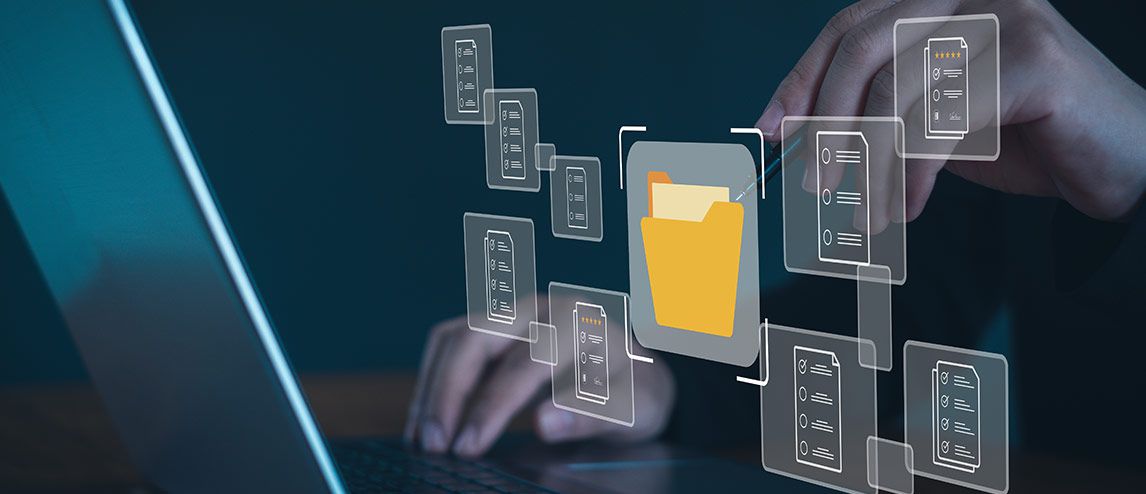
The Importance of RTSM in Clinical Trials: Enhancing Efficiency and Accuracy
Randomization and Trial Supply Management (RTSM) has become a cornerstone in modern clinical trials. In a field where precision, compliance, and efficiency are critical, RTSM systems offer a sophisticated solution to the often complex processes involved in clinical research. But what exactly is RTSM, and how does it improve the overall success of clinical trials?
This blog explores the importance of RTSM in clinical trials, shedding light on how it ensures data integrity, optimizes resource use, and supports compliance with regulatory standards. By the end of this post, you’ll have a clearer understanding of how integrating RTSM can transform clinical trials and improve outcomes.
What is RTSM in Clinical Trials?
Understanding the Basics of RTSM
RTSM, short for Randomization and Trial Supply Management, is a technology solution used in clinical trials to manage the process of randomizing patients and handling drug supply logistics. This system is crucial because it allows for real-time tracking and seamless coordination across multiple sites, ensuring trials remain organized and effective.
The Role of Randomization in RTSM
Randomization, a core function of RTSM, is essential in ensuring the unbiased assignment of treatment groups in clinical trials. By automating this process, RTSM eliminates human error and potential biases, which helps to maintain the scientific integrity of the study.
Trial Supply Management
The second component of RTSM is the efficient management of trial supplies, such as investigational medicinal products (IMPs). It ensures that drug supplies are appropriately distributed, reducing the risk of delays and ensuring trial participants receive the correct dosage at the right time.
The Evolution of RTSM Systems
From Paper-Based Methods to Digital Systems
Clinical trials have long relied on traditional methods of patient randomization and supply tracking. However, the introduction of RTSM systems marked a significant shift from cumbersome, error-prone paper-based methods to automated digital platforms. This evolution has allowed for real-time monitoring and adjustments, improving overall trial management.
Adoption of Cloud-Based RTSM Solutions
In recent years, cloud-based RTSM solutions have become increasingly popular. They offer greater flexibility, scalability, and real-time data access, making it easier for clinical trial stakeholders to monitor progress, adapt to changes, and ensure compliance.
Key Benefits of RTSM in Clinical Trials
1. Improved Efficiency and Speed
RTSM automates many processes that were once manual, such as patient randomization, inventory management, and drug dispensation. This automation reduces time spent on administrative tasks and accelerates the pace of the trial.
2. Enhanced Data Accuracy
With automated data collection and real-time monitoring, RTSM significantly reduces the risk of human error. Accurate data is crucial in clinical trials to ensure that results are reliable and valid.
3. Better Compliance with Regulations
Regulatory agencies like the FDA and EMA have strict requirements for clinical trial data. RTSM systems help ensure that all trial data is recorded accurately and securely, making it easier to comply with these regulations and pass audits.
4. Cost Savings
By optimizing resource allocation and reducing waste, RTSM systems can lead to significant cost savings. With better drug supply management and fewer delays, clinical trials can stay within budget and on schedule.
5. Scalability for Multi-Center Trials
For trials involving multiple research centers across various regions, RTSM systems offer the scalability needed to manage complex logistics seamlessly. Real-time data access allows all stakeholders, regardless of location, to stay informed and aligned.
How RTSM Enhances Randomization in Clinical Trials
Blinding and Randomization Techniques
One of the key features of RTSM systems is their ability to support blinding and randomization techniques. By automating these processes, RTSM systems ensure that the allocation of treatments is truly random, which is critical in maintaining the integrity of double-blind studies.
Adaptive Randomization
Advanced RTSM systems can also accommodate adaptive randomization techniques, which allow researchers to adjust randomization algorithms based on interim data. This flexibility can improve the ethical balance of treatment assignments while still maintaining scientific rigor.
Efficient Trial Supply Management with RTSM
Managing Drug Supply Across Multiple Sites
RTSM systems offer a robust solution for managing drug supply across multiple trial sites. The system tracks inventory in real-time, ensuring that each site has the correct amount of investigational product (IP) and that no shortages or overages occur.
Demand Forecasting and Reordering
By utilizing historical data and real-time monitoring, RTSM systems can forecast supply needs more accurately, reducing the likelihood of costly delays or waste due to overproduction.
Temperature Monitoring and Cold Chain Management
In some trials, especially those involving biologics or vaccines, maintaining the proper temperature of investigational products is crucial. Many RTSM systems now integrate temperature monitoring features, ensuring the product’s integrity from the manufacturer to the patient.
Regulatory Considerations for RTSM in Clinical Trials
Ensuring Compliance with FDA and EMA Guidelines
RTSM systems are designed to comply with Good Clinical Practice (GCP) guidelines and regulatory requirements set by agencies like the FDA and EMA. These systems provide the necessary documentation and audit trails to ensure that clinical trial data is reliable and can withstand regulatory scrutiny.
Data Security and Patient Confidentiality
In addition to regulatory compliance, data security is a top concern in clinical trials. RTSM systems employ high-level encryption and other security measures to protect patient information and ensure that data is only accessible to authorized personnel.
The Role of RTSM in Decentralized Clinical Trials
Facilitating Remote Monitoring and Participation
The rise of decentralized clinical trials (DCTs) has increased the need for flexible, remote-friendly trial management systems. RTSM plays a crucial role in DCTs by allowing for real-time, remote management of patient randomization and trial supply, regardless of participants’ location.
Integrating with Wearable Devices and ePRO Systems
Some RTSM platforms are now being integrated with electronic patient-reported outcomes (ePRO) systems and wearable devices. This allows for real-time data collection directly from patients, enhancing the overall efficiency of the trial while providing a more patient-centric approach.
Choosing the Right RTSM System for Your Clinical Trial
Factors to Consider
When selecting an RTSM system, it’s essential to consider factors like scalability, ease of integration with other clinical trial systems (such as Electronic Data Capture), and the level of support provided by the vendor. Not all RTSM platforms are created equal, so it’s important to find one that fits the specific needs of your trial.
Customization and Flexibility
Some trials may require a highly customized RTSM system, particularly those with complex protocols or adaptive designs. Flexibility in the platform’s design can ensure that it meets the unique requirements of the trial without unnecessary complexity.
Challenges in Implementing RTSM Systems
Technical Challenges
While RTSM systems offer numerous advantages, they can also present technical challenges, especially in the early stages of implementation. Ensuring seamless integration with existing trial management software and training staff to use the system efficiently can be hurdles that require careful planning.
Cost and Resource Allocation
Although RTSM systems can ultimately save money, the upfront costs of software implementation and training can be a significant investment. For smaller organizations or trials with limited budgets, this may present a challenge.
The Future of RTSM in Clinical Trials
AI and Machine Learning Integration
The future of RTSM systems may involve even greater use of AI and machine learning technologies. These advancements could further enhance adaptive randomization, predictive analytics for trial supply, and personalized patient management within trials.
Blockchain for Enhanced Data Security
Another potential future development is the integration of blockchain technology into RTSM systems. This could provide an additional layer of security and transparency, ensuring that trial data is immutable and auditable in real time.
Conclusion
RTSM systems have revolutionized the way clinical trials are conducted, bringing about improved efficiency, accuracy, and compliance. From patient randomization to supply management, these systems provide real-time data that ensures trials run smoothly and within regulatory guidelines. As the field of clinical research continues to evolve, DDi’s RTSM software mIRT will play an increasingly vital role in optimizing trial management, making it an indispensable tool for researchers worldwide.
Get the latest updates from DDi
Explore Topics
- Automation & AI (11)
- Clinical Automation (9)
- Consumer Health (1)
- IRT & Clinical Supplies (23)
- Labeling (16)
- Regulations (25)
- Regulatory Automation (14)
- Regulatory Biopharma (3)
- Regulatory Content Management (5)
- Regulatory Information Management (23)
- UDI (11)
- Writing (12)
Recent Blogs
 Clinical Supplies Forecasting …IRT & Clinical Supplies
Clinical Supplies Forecasting …IRT & Clinical Supplies Transforming Pharma & Med …Automation & AI
Transforming Pharma & Med …Automation & AI Medical Device Technical Docum…Automation & AI
Medical Device Technical Docum…Automation & AI
Previous Post
Next Post
Related Posts
CONNECT WITH US

Let's talk about how DDi can help you




